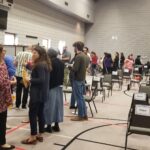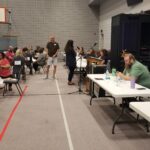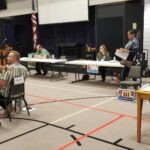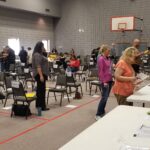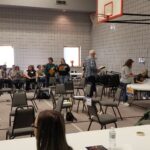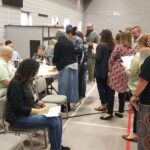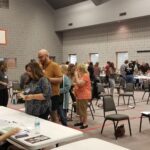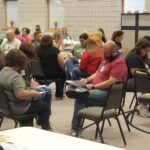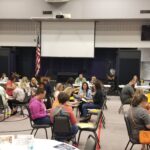One Joplin hosts “Rethinking Poverty” event
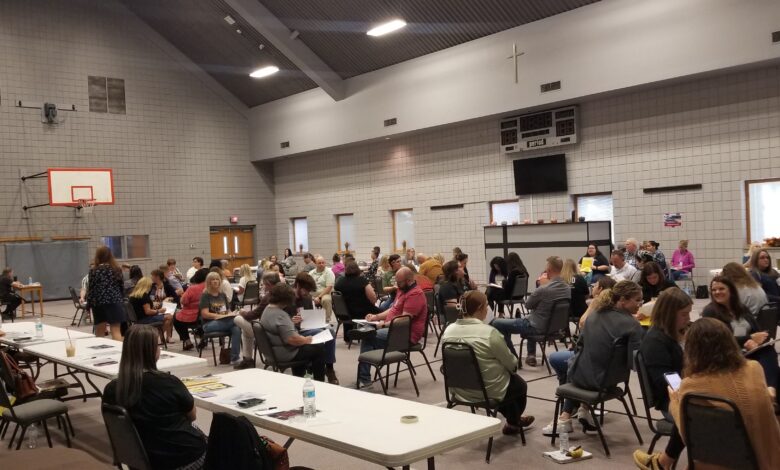
Sometimes it’s hard to imagine yourself in someone’s shoes, particularly those who are less fortunate, but that’s where One Joplin is stepping in to help.
On Wednesday, One Joplin hosted a “Rethinking Poverty” event that allowed volunteers to participate in a simulation designed to show them what it was like to live in different levels of poverty.
“This is really to help build empathy in our community,” One Joplin Executive Director Nicole Brown told NewsTalk KZRG. “Individuals who may be making policy, maybe a supervisor—individuals in a variety of situations that may be working with community members who are struggling and trying to work their way out of a poverty situation. We want them to come here and experience a simulated month of living in poverty.”
The participants in the simulation were given a name and assigned to a family unit, with each unit given a packet that contained their simulation details such as family size, type, employment status, etc. Each 15 minutes represented a week’s time in the simulation, with simulation lasting a month (one hour).
“The simulation includes pretty much everything in daily life,” Brown said. “Social security is here. The jail system is here. The school system is here, public transportation, utilities—all of the things we deal with in daily life are ways for participants to interact with that.
“We really want our participants to feel like they’re experiencing (what it’s like to struggle). There is built-in frustration in this simulation on purpose because we want individuals to see these are the barriers our community members are hitting over and over. So, how, as citizens, can we help to remove some of those barriers.”
The purpose of the simulation is to build empathy for those who go through the day-to-day struggles of living in poverty. In Joplin, nearly 17 percent of the residents are at or below the poverty line.
“We have quite a few employers that signed up today with the purpose of building more empathy in their organizations and figuring out better ways to better employ and help the working poor who are a part of their workforce and help them work through that,” Brown said.




